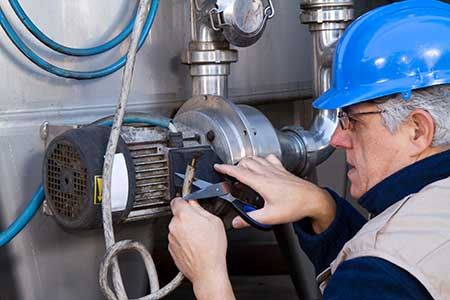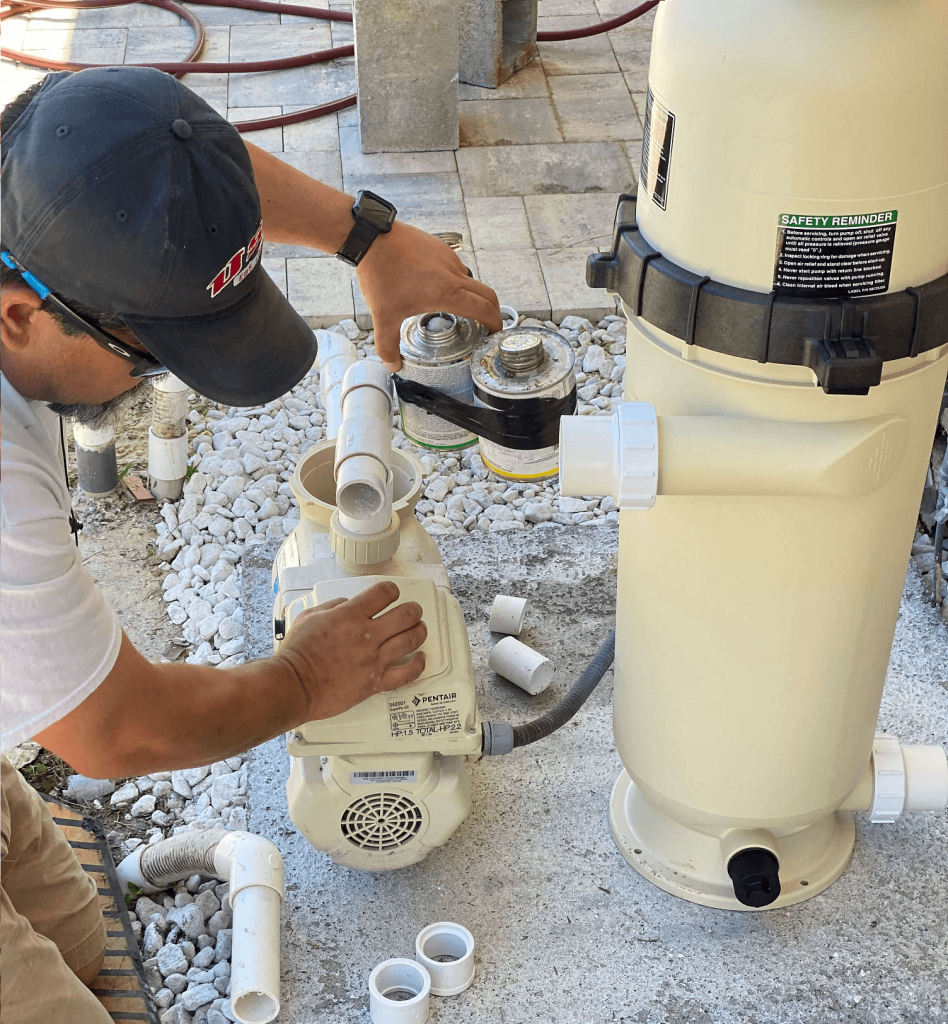Seamless Well Pump Replacement: Restoring Your Supply Of Water with Precision
Seamless Well Pump Replacement: Restoring Your Supply Of Water with Precision
Blog Article
Understanding the Secret Parts of Effective Water Filtration Systems

Relevance of Water Filtering Solution
Water filtration systems play an essential role in ensuring accessibility to clean and safe drinking water by properly eliminating pollutants and contaminants. These systems are crucial in attending to the growing problems over water quality and the prospective health dangers connected with eating contaminated water. By making use of different purification systems such as reverse osmosis, turned on carbon, and UV sterilization, water purification systems can successfully get rid of harmful compounds like bacteria, viruses, hefty metals, and chemicals from the water.
Furthermore, water purification systems help to enhance the taste and odor of water by removing chlorine, sediments, and various other pollutants that can impact its top quality. Water Softeners. This improvement in water quality not only makes it extra palatable but additionally encourages individuals to consume an adequate amount of water daily, advertising far better hydration and overall health and wellness
Kinds Of Filtration Components

Physical filters are developed to physically stress out pollutants from the water. These filters can be constructed from materials like ceramic, carbon, or perhaps sand, and they work by capturing fragments bigger than the filter's pores as water goes through.
Chemical filters use different chemical processes to eliminate pollutants from the water. Instances consist of triggered carbon filters, which adsorb impurities, and reverse osmosis membranes, which use pressure to separate pollutants from the water.
Biological filters use living microorganisms like microorganisms or algae to break down raw material and pollutants in the water. These filters are commonly made use of in wastewater therapy plants or all-natural water filtration systems.
Understanding the different types of filtration components is essential for choosing the most appropriate water filtering system for details purification needs.
Function of Debris Filters
Debris filters play a crucial duty in water purification systems by properly capturing solid particles put on hold in the water. These filters are commonly the initial line of protection in a filtering system, eliminating larger particles such as sand, silt, dirt, and corrosion prior to the water moves through finer filtration phases. By capturing these sediments, the filters prevent them click over here from getting to downstream elements, thus expanding the life expectancy and effectiveness of the entire system.
Neglecting this upkeep can lead to obstructing, decreased water circulation, and compromised filtering performance. In general, debris filters are essential elements that add substantially to the effectiveness of water purification systems.
Role of Triggered Carbon Filters
Playing a vital duty in water filtration systems, turned on carbon filters contribute in getting rid of impurities and pollutants from the water. These filters are designed to adsorb and trap a large variety of contaminants, consisting of chlorine, volatile organic compounds (VOCs), pesticides, and herbicides. The triggered carbon product has a huge area, permitting the effective trapping of impurities through a process called adsorption. As water passes through the filter, the activated carbon draws in and holds onto the pollutants, ensuring that the water that comes out beyond is cleaner and safer for consumption.
Turned on carbon filters are very effective at boosting the taste and odor of have a peek here water by reducing chemicals that can influence its high quality. Due to their versatility and integrity, turned on carbon filters are an essential part in guaranteeing that water is purified to the greatest standards prior to reaching customers.
Comprehending Reverse Osmosis Systems
Reverse osmosis systems are advanced water purification systems that employ an advanced procedure to remove impurities and contaminations from drinking water. These systems function by using pressure to the water, requiring it with a semi-permeable membrane layer.
One key benefit of reverse osmosis systems is their capability to get rid of a vast array of pollutants, consisting of hefty steels, dissolved solids, bacteria, and viruses. This makes them extremely efficient in improving the overall high quality and safety and security of alcohol consumption water. In addition, reverse osmosis systems are reasonably low-maintenance and can be mounted under the sink or in a main filtering system, giving hassle-free accessibility to tidy water throughout the house. Overall, understanding how reverse osmosis systems work can assist people make notified decisions regarding their water filtering requirements.
Conclusion
In conclusion, effective water purification systems are important for making sure tidy look at more info and safe drinking water. The essential components of these systems consist of debris filters, triggered carbon filters, and reverse osmosis systems. By understanding the feature and duty of each element, individuals can make enlightened choices when selecting a water filtration system. It is very important to prioritize the quality of water in order to advertise general health and health.
Water purification systems play a crucial function in ensuring access to tidy and risk-free drinking water by effectively eliminating pollutants and contaminations. By utilizing different purification systems such as reverse osmosis, activated carbon, and UV sanitation, water filtration systems can successfully eliminate dangerous substances like germs, infections, heavy steels, and chemicals from the water supply.
Sediment filters play an essential function in water purification systems by effectively catching strong particles suspended in the water (Water Treatment).Playing an important duty in water filtration systems, activated carbon filters are crucial in eliminating contaminations and contaminants from the water supply.Reverse osmosis systems are sophisticated water purification systems that employ an advanced process to eliminate impurities and impurities from drinking water
Report this page